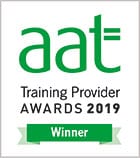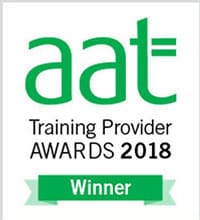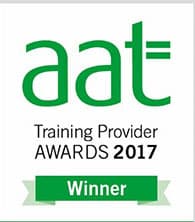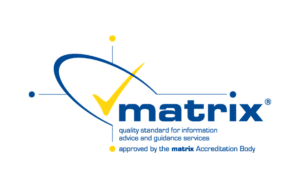Creating a supportive learning environment is vital for the growth and development of accounting apprentices. A well-structured environment enhances their technical skills and fosters confidence and professional growth. This ensures apprentices receive the necessary education and experience to succeed in their accounting roles. This blog explores the importance of creating a supportive learning environment and offers practical tips to help employers create one.
The importance of creating a supportive learning environment
The nature of an apprentice’s learning environment will have a strong influence on their ability and enthusiasm to learn and to develop their skills and behaviours. It bridges the gap between theoretical accounting knowledge and practical application, ensuring your apprentices are well-prepared for their finance-based careers. Here are some key reasons why such an environment is essential:
Enhanced skill development: A supportive setting allows apprentices to develop and refine their accounting skills through hands-on experience and real-world applications.
Increased confidence: When apprentices feel supported, they are more likely to take initiative and tackle challenging tasks, boosting their confidence and competence.
Professional growth: Providing a structured learning environment helps accounting apprentices understand the principles of bookkeeping, which underpins their ability to develop
more comprehensive skills in accounting, taxation, and auditing and facilitate their professional development.
Regulatory compliance: As an apprenticeship employer, you must provide a minimum of 6 hours per week of off-the-job training. This fulfils your legal obligations and reinforces your commitment to apprentice development. Further details about off-the-job training can be found on our Apprenticeships and Funding page.
Practical tips for creating a supportive learning environment
To create a supportive learning environment, you need to consider various strategies that cater to the diverse needs of apprentices. Here are some practical tips:
Offer sufficient study leave
Granting study leave is a powerful way to support apprentices. It allows them to focus on their studies without the pressure of work commitments. To maximise effectiveness, study leave should be scheduled around key academic deadlines, such as tests, exams or interviews.
Provide access to additional training resources
Access to additional training resources is vital for apprentices to enhance their learning. You should consider offering:
- In-person or online courses: These provide flexible learning opportunities that apprentices can fit in with their work schedules. During the apprenticeship programme, they can also provide additional learning opportunities to develop new skills and behaviours.
- Software, study materials, and books: Providing access to and relevant training on the latest IT and accounting software and bookkeeping and accountancy books and journals can aid their learning.
Create a buddy system
Implementing a buddy system pairs apprentices with more experienced team members in your organisation who can offer guidance and support. This system has several benefits:
- Mentorship: Experienced colleagues can mentor apprentices, helping them navigate the complexities of the accounting field.
- On-the-job training: Buddies can provide practical training and share insights not covered in formal education.
- Emotional support: Having a buddy fosters a sense of belonging and reduces isolation within the organisation.
- Relating studies to the workplace: A buddy who has “been there, done that” can help apprentices see how their studies relate to their day jobs. The studies help the day job, and the day job helps the studies. If, for example, an apprentice is studying business tax and the office uses tax software, ask the apprentice to perform the business tax comp manually and then check their answers with the comp produced by the software. Eek! If they are different, work out why.
Apprentices who sign up for the Accountancy Learning apprenticeship programme also have access to an experienced AAT tutor who will arrange weekly meetings using MS Teams and provide 1-2-1 support where needed.
Regular feedback and reviews
Conducting regular feedback and performance reviews are critical in a supportive learning environment. Constructive feedback helps apprentices understand their strengths and areas for improvement. Scheduled reviews provide an opportunity to set goals and track progress, ensuring apprentices stay on the right path.
Foster a culture of continuous learning
Encouraging a culture of continuous learning and CPD benefits both apprentices and your organisation. This can be achieved by:
- Encouraging professional development: Promote participation in professional development courses and certifications. Discuss “next steps” so that apprentices have something to aim for. A clear goal to work towards.
- Knowledge sharing: Organise knowledge-sharing sessions where team members can discuss areas of the apprenticeship programme which they may be finding harder or offer advice to others, be that about the apprenticeship or by sharing tips for working more efficiently.
- Recognition: Recognise and reward learning and development efforts and achievements on a 1-2-1 level and celebrate successes with the broader team.
Create a positive work environment
A positive work environment is essential for apprentices’ well-being and productivity. Ensure your workplace is inclusive, respectful, and supportive. Simple gestures, such as acknowledging accomplishments and offering encouragement, can significantly impact apprentices’ morale and motivation. Be both challenging and caring.
Utilise technology
Leveraging technology can enhance the learning experience for apprentices. Learning to use cloud accounting packages, such as Xero or QuickBooks, and learning management systems, such as Accountancy Learning’s ‘Moodle’ system, help facilitate training and communication. Technology can also help track apprentices’ progress and identify areas needing additional support.
Conclusion
Creating a supportive learning environment for accounting apprentices is more than just meeting regulatory requirements; it’s about investing in the future of your workforce. Employers can foster an environment that promotes growth and development by offering study leave, providing access to additional training resources, and creating a buddy/mentoring system.
Regular feedback, creating a culture of continuous learning, and creating a positive work environment are also essential components. Using the latest technology further enhances the learning experience, ensuring apprentices are well-prepared for their careers. By prioritising these strategies, you can create a thriving environment where accounting apprentices can excel.
There will also be a cascade effect. An apprentice who has been supported in this way by their managers and peers will, as they themselves become managers, provide similar support to the apprentices that work for them.
How we can help you create a supporting learning environment
Accountancy Learning has worked with hundreds of employers over the years, many of whom use us on an annual basis to recruit and train their apprentices. We work closely with employers and their apprentices to ensure support is provided in addition to the apprenticeship training. This increases the likelihood of the apprentice successfully passing their exams and, more importantly, staying with the employer to develop their career further and provide a positive return to the investment made in them by their employer.
To find out more, please contact us at 01392 244071 or email [email protected].


















